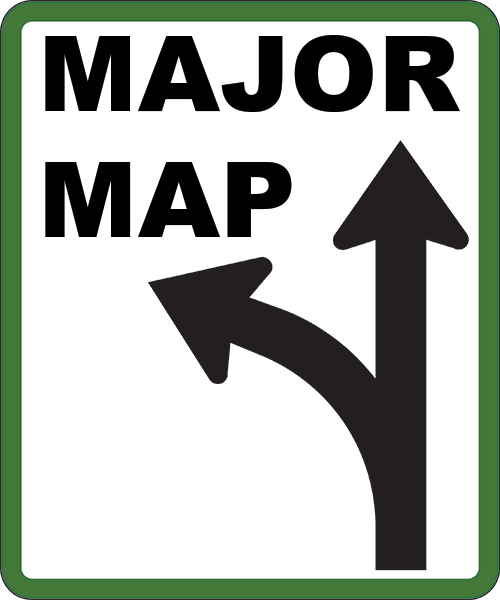2019-2020 Undergraduate Studies Bulletin
Middle Level Education, BA
|
|
Learning Outcomes
Students who graduate with a B.A. in Middle Level Education should be able to …
- understand the major concepts, principles, theories, and research related to young adolescent development, and they provide opportunities that support student development and learning.
- understand the major concepts, principles, theories, and research underlying the philosophical foundations of developmentally responsive middle level programs and schools, and they work successfully within these organizational components.
- understand the major concepts, principles, theories, standards, and research related to middle level curriculum and assessment, and they use this knowledge in their practice.
- understand and use the central concepts, tools of inquiry, standards, and structures of content in their chosen teaching fields, and they create meaningful learning experiences that develop all young adolescents’ competence in subject matter and skills.
- understand and use the major concepts, principles, theories, and research related to effective instruction and assessment, and they employ a variety of strategies for a developmentally appropriate climate to meet the varying abilities and learning styles of all young adolescents.
- understand the major concepts, principles, theories, and research related to working collaboratively with family and community members, and they use that knowledge to maximize the learning of all young adolescents.
- understand the complexity of teaching young adolescents, and they engage in practices and behaviors that develop their competence as professionals.
Major Map
A major map is a layout of required courses in a given program of study, including critical courses and suggested course sequences to ensure a clear path to graduation.
Major maps are only a suggested or recommended sequence of courses required in a program of study. Please contact your academic advisor for assistance in the application of specific coursework to a program of study and course selection and planning for upcoming semesters.
 |
 |
 |
|
| Middle Level Education, BA |
Middle Level Education, BA |
Middle Level Education, BA |
|
| Mathematics & English Concentration |
Mathematics & Social Studies Concentration |
Science & English Concentration |
|
| |
|
|
|
 |
 |
|
|
| Middle Level Education, BA |
Middle Level Education, BA |
|
|
| Science & Social Studies Concentration |
Social Studies & English Concentration |
|
|
Degree Requirements (122-124 hours)
See College of Education for professional program admissions requirements, certification requirements, and other academic opportunities.
Program of Study
- Carolina Core (31-43 hours)
- College Requirements (0 hours)
- Program Requirements (3-6 hours)
- Major Requirements (85-90 hours)
|
1. Carolina Core (31-43 hours)
Effective, Engaged, and Persuasive Communication: Written — CMW (6 hours)
must be passed with a grade of C or higher
Analytical Reasoning and Problem Solving — ARP (6-8 hours)
Scientific Literacy — SCI (7 hours)
Global Citizenship and Multicultural Understanding: Foreign Language — GFL (0-6 hours)
To meet the GFL requirement, students in the BA in Middle Level Education complete the Carolina Core approved courses in Foreign Language (GFL) or by achieving a score of 2 or better on a USC foreign language placement test.
Global Citizenship and Multicultural Understanding: Historical Thinking — GHS (3 hours)
Global Citizenship and Multicultural Understanding: Social Sciences — GSS (3 hours)
Aesthetic and Interpretive Understanding — AIU (3 hours)
Effective, Engaged, and Persuasive Communication: Spoken Component* — CMS (0-3 hours)
- any overlay or stand-alone CC-CMS course
Information Literacy* — INF (0-3 hours)
Values, Ethics, and Social Responsibility* — VSR (0-3 hours)
*Carolina Core Stand Alone or Overlay Eligible Requirements — Overlay-approved courses offer students the option of meeting two Carolina Core components in a single course. A maximum of two overlays is allowed. The total Carolina Core credit hours must add up to a minimum of 31 hours. Some programs may have a higher number of minimum Carolina Core hours due to specified requirements.
2. College Requirements (0 hours)
No college-required courses for this program.
3. Program Requirements (3-6 hours)
Supporting Courses (3 hours)
Additional Literature or History
Select one from the following:
Minor (18 hours) optional
A student may choose to complete a minor consisting of 18 credit hours of prescribed courses. The minor is intended to develop a coherent basic preparation in a second area of study. Courses applied toward general education requirements cannot be counted toward the minor. No course may satisfy both major and minor requirements. All minor courses must be passed with a grade of C or better.
Electives (0-3 hours)
The number of elective hours required depends upon the number of hours used to fulfill other degree requirements. Minimum degree requirements must equal 122 hours.
4. Major Requirements (85-90 hours)
Major Courses (49 hours)
A minimum grade of C is required in all major courses.
Education Core (9 hours)
Middle Level Core (22 hours)
Clinical Experience (18 hours)
Concentrations (36-41 hours)
Must be in addition to courses taken to meet Carolina Core requirements.
Specialization is required in two different content areas, chosen from:
- English
- Mathematics
- Science
- Social Studies
Students pursuing a B.A. degree cannot choose the Math/Science combination.
Specialization A (18-23 hours): To be completed with courses listed below and approved by College of Education advisor in English, mathematics, science, or social studies.
Specialization B (18-23 hours): To be completed with courses listed below and approved by College of Education advisor in English, mathematics, science, or social studies and different from Specialization A.
English Specialization (18 hours)
Social Studies Specialization (18 hours)
Mathematics Specialization (18-20 hours)
Science Specialization (18-23 hours)
Select two courses from each of the following sciences:
- Life Science (6-8 hours)
- Physical Science (6-8 hours)
- Earth Science (6-7 hours)
|